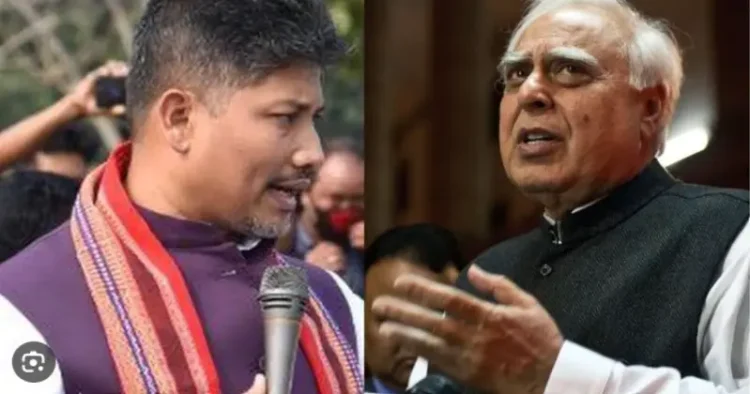Guwahati: Assam witnessed a heated debate as Congress leader and senior advocate Kapil Sibal stirred controversy on December 7th by asserting in the Supreme Court that Assam was not initially part of India but rather a segment of Myanmar. Sibal, presenting arguments related to petitions challenging Section 6A of the Citizenship Act of 1955, stated, “Assam was a part of Myanmar, and then the British conquered a part of it, leading to Assam being handed over to the British.”
This assertion is not the first instance of a Congress leader attempting to promote divisive narratives about Assam. In 2022, Rahul Gandhi’s geographical definition of India, encompassing Kashmir to Kanyakumari and Gujarat to West Bengal, sparked outrage, particularly in Assam. Chief Minister Himanta Biswa Sarma and others sharply criticised Gandhi. Many FIRs were also filed against the Congress leader at that time.
Reacting to Sibal’s controversial statements, Assam’s Minister of Information and Public Relations, Pijush Hazarika, strongly criticised the Congress leader, accusing him of tarnishing the state’s history. Hazarika took to social media, stating, “Mr. Kapil Sibal sir has been poorly briefed & speaks a left-liberal view that tends to alienate the Northeast by conjuring such theories. At no point in Assam’s history, we were part of Myanmar.”
Hazarika emphasised Assam’s historical continuity as an integral part of Bharatvarsh, refuting Sibal’s claims and highlighting the region’s deep-rooted connection to the Indian subcontinent. The Minister expressed concerns that such baseless theories could alienate the Northeast and undermine its rich cultural history.
The controversy has intensified as the Constitution Bench of the Supreme Court, led by Chief Justice Chandrachud, examines the constitutional validity of Section 6A. Comprising Justices Bopanna, Sundresh, Pardiwala, and Misra, the bench’s scrutiny of this provision carries significant implications for Assam’s socio-political landscape and demographic composition.
Sibal’s narrative not only faces legal scrutiny but also triggers broader questions about the impact on Assam’s identity and historical narrative. The state, known for its cultural diversity and historical significance, has often grappled with attempts to distort its past for political gains.
Assam’s resistance to the controversial theories presented by Congress leaders reflects the region’s commitment to preserving its distinct identity within the Indian union. The accusations against Sibal highlight the potential consequences of political figures using historical narratives as tools for their agendas, especially in sensitive regions like Assam.
As the Supreme Court deliberates on the constitutional validity of Section 6A, Assam remains at the centre of a broader discourse on historical accuracy, cultural identity, and the potential impact on the state’s future. The controversy serves as a reminder of the intricate relationship between history, politics, and public perception, urging stakeholders to approach such matters with sensitivity and a commitment to truth.



















Comments